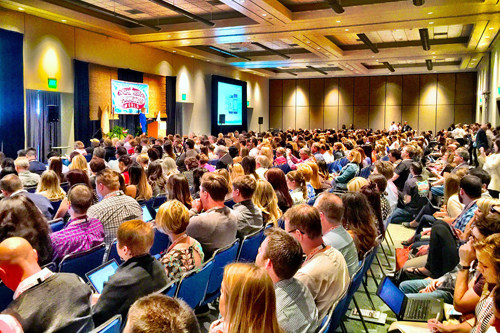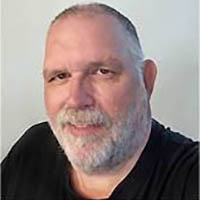Corporate events require a slightly different skill-set (and mind-set) than band and festival gigs.
There’s a lot of waiting for people to make changes, hand-holding of clients who worry about everything, waiting for more changes, communicating changes to the crew (only to find out that things have changed again), calming clients who are now terrified the changes will ruin their show – and of course, some audio thrown in for good measure.
Things to remember about corporate events:
• There will be changes.
• The CEO and corporate officers will be treated as gods or rock stars, depending on the culture of the company.
• Catering and décor are more important than audio – until the CEO can’t be heard in the back of the room.
• There will be changes.
My company works a lot of “corporates,” so here are some key things we’ve learned over the years that make these unique gigs a bit easier, and that have even saved a show or two along the way.
Power. With all the computers and digital consoles at front of house and monitor world, stable power is a must, so all mission critical gear plugs into uninterruptable power supplies (UPS). If the venue power or a generator goes out, we have time to save any work and do a proper shutdown of the computers and desks. If there’s a brown-out during the show, the consoles won’t need to reboot. And if we’re the production provider, we supply UPS units for client computers as well.
Spares and backups. While responsible audio professionals carry extra microphones and cables for every show (right?), higher stakes events require bringing extra everything. For example, we bring a backup/utility mixer to all corporate events, making sure it can accommodate the important inputs and is large enough to get us through the gig in case the main desk goes down.
Safety recordings. Regardless if a primary recording is being done or the video folks are recording the event, it’s good practice to do a back-up. It’s pretty easy to record to USB if you have a fairly late-model digital (and even analog) console. We’ve had more than one client over the years need the back-up recording because the main was damaged or lost in transit.
VOG (“voice of god”) mic. No matter the event size, we always have a board mic ready to go because inevitably the event planner will ask us to make an announcement. It’s also a safety issue. Once at a large event the fire alarm sounded and the person at the podium didn’t know what to say or do, so I turned off the podium mic and used the VOG mic to provide instruction to the attendees.
Music. While the majority of the events we work are scripted, and music cues have been picked and provided to us, there have been occasions when the client assumes we’re like a DJ and have thousands of songs on hand. (Well, we do now.) My laptop is full of tunes, including royalty-free tracks of all styles and lengths, from short stings (quick music phrases) to full length songs. Royalty-free tracks are essential because many of these events are video recorded and music rights would have to be retained. We also have pre-made set lists for walk-in/walk-out and dinner music.
Editing. A basic computer editing program comes in handy for advance and on-site prep of tracks, such as where they start and for length. It’s a lot easier to just cue up a prepped track and press play instead of having to do “heads and tails” with each cut.
Playback. We made the switch to computer playback a few years ago and use a program called Sports Sounds Pro as our main playback unit. It lets us set up cues as onscreen buttons that can be clicked on or assign cues to the keyboard. Also, Instant Replay by 360 Systems is a popular stand-alone machine for playback in the corporate market.
Multiple computers. We carry at least three laptops to gigs and all are set up and loaded with the same programs and music to insure there’s always an optimized back-up. We also carry an iPad loaded with console remote control apps.
RF scanner. With all of the changes in the air(waves), frequency monitoring and coordination is a must. We use an RF Explorer, a stand-alone unit that can also connect to a computer that provides coordination programs, to help us avoid wireless system interference.















